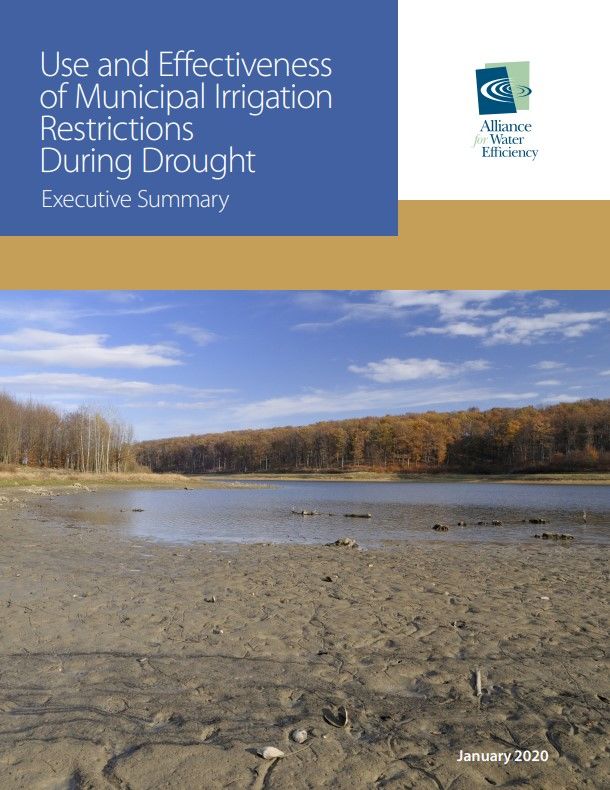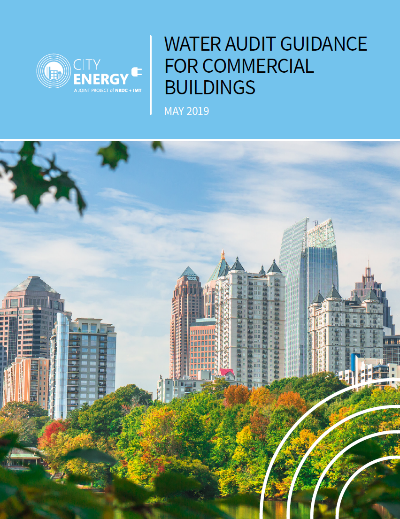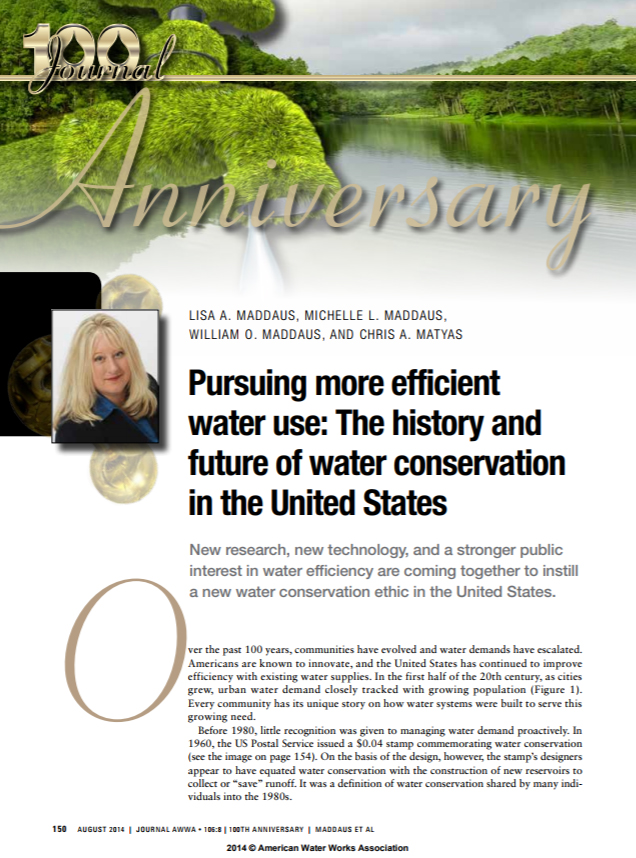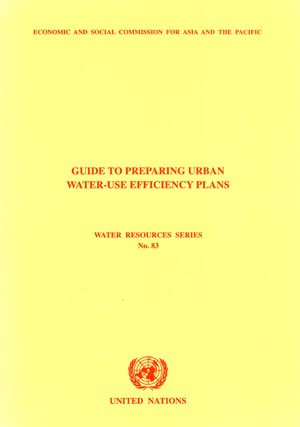
AWE Use and Effectiveness of Municipal Irrigation Restrictions During Drought, Jan 2020
Maddaus Water Management and Western Policy Research were co-principal investigators, conducting research and analysis, for the Study of the Use and Effectiveness of Municipal Irrigation Restrictions During Drought. This Study, and subsequent report, was sponsored by the Alliance for Water Efficiency (AWE), 14 participating member water agencies, and one national corporation. The Study was initiated to perform a robust analysis on the practice and impact of voluntary municipal irrigation restrictions applied during dry year conditions and mandatory restrictions subsequently required during more severe water shortages. Included in the report is a catalog of lessons learned derived from 11 detailed case studies during the most recent droughts experienced by different types of water utilities. The report also includes a summary of statewide drought responses in four states: California, Texas, Arizona, and Nevada. Further information, including an executive summary, is available online:
View on AWE WebsiteView on NIDIS U.S. Drought Portal

Water Audit Guidance for Commercial Buildings, May 2019
Commercial water audits offer multiple benefits to facility owners, water utilities, and occupants of the buildings. Water and energy efficiency upgrades can result in significant savings. Michelle Maddaus and William Maddaus teamed up to contribute to this comprehensive commercial water audit guide. They authored the net present value section of the manual. The overall goals of the guide are to:
- Provide a common basis for conducting water audits.
- Define levels of effort for water audits.
- Establish a standard for water audit reports.
- Provide guidance for building owners, managers, and governments for conducting water audits.
- Serve as a guide to best practices for water auditors.

AWWA Manual M52, December 2017
Michelle Maddaus, William Maddaus, and Lisa Maddaus are the principal authors of Water Conservation Programs — A Planning Manual, 2nd Edition the American Water Works Association’s M52 Manual. As AWWA’s only Manual of Practice on water conservation, it is the source of providing guidance for municipal water resources managers on developing a city-wide or regional water conservation plan. The manual has an entire chapter on benefit-cost analysis, which is used as an example for the CWEP (formerly CUWCC) cost-effectiveness test on a residential water survey conservation program. This manual was recently updated in January 2018. The first version was authored by Maddaus Water Management in 2006.

AWWA Pursuing more efficient water use: The history and future of water conservation in the United States, 2014
Lisa Maddaus, Michelle Maddaus, William Maddaus and Chris Matyas authored this article on new research, new technology, and a stronger public interest in water efficiency are coming together to instill a new water conservation ethic in the United States.

Preparing Urban Water Use Efficiency Plans: A Best Practice Guide, 2013
Lisa Maddaus, William Maddaus, and Michelle Maddaus are the principal authors of Preparing Urban Water Use Efficiency Plans: A Best Practice Guide. Many communities are facing water scarcity in developing and developed countries alike. There are numerous publications and on-going research studies documenting the changes in our climate and potential for worsening shortages in our future. Meeting future potable water demands as communities continue to grow will rely heavily on using our existing water resources more efficiently. Best Practice Guide to Preparing Urban Water Use Efficiency Plans provides detailed approaches to developing and implementing a water conservation plan. It covers the broad spectrum of conservation planning for urban communities, including achieving more efficiency from residential domestic uses, commercial and governmental facilities use, industrial uses, and pricing water loss control programs. The steps in the Guide clearly outline and provide sample calculations to aid in determining which water use efficiency activities are financially justifiable to undertake. The end result is a plan that policy decision makers can adopt and fund, and that water service provider staff can implement to help increase their community’s water reliability. It includes numerous case studies and a Microsoft Excel based software tool to allow planners to evaluate the business case for implementing various water conservation activities. This book is an essential resource for professionals in water and wastewater resources, specifically planners and engineers. It is also a useful guide for Post Graduate and Undergraduate students.

AWWA Water Conservation for Small- and Medium-Sized Utilities, 2010
William Maddaus and Deborah Green are the principal authors of AWWA Water Conservation for Small- and Medium-Sized Utilities. Specially prepared for utilities serving fewer than 100,000 customers, this book focuses on effective solutions that small-scale systems can employ to achieve large-scale results. Offering a menu of techniques and approaches, worksheets walk utilities through building the customized program that best suits the customers, budget, and geographic location.

AWWA Manual M50, 2007
William Maddaus and Lisa Maddaus are the principal authors of Water Resources Planning, the American Water Works Association’s M50 Manual. As AWWA’s only Manual of Practice on water conservation, it is the source of providing guidance for municipal water resources managers on developing a city-wide or regional water conservation plan. The manual has an entire chapter on benefit-cost analysis, which is used as an example for the CUWCC cost-effectiveness test on a residential water survey conservation program.

UN Guide to Preparing Urban Water Efficiency Plans, 2003
The Asia and Pacific Division of the United Nations commissioned Maddaus Water Management to prepare a handbook on water efficiency planning for utilities in the Asia-Pacific region of the world. It included software to evaluate cost-effectiveness. Prepared by William Maddaus and Lisa Maddaus, and with the Council’s approval, the UN chose to adapt the Council’s Excel version of the software to this task. MWM made a generic version of the best management practices cost-effectiveness spreadsheets that worked on any water conservation measure, were done in metric units, and were placed on a diskette that went with the handbook. The book was sold on Amazon worldwide and quickly sold out. In 2003, William and Lisa conducted a water efficiency workshop, including training on the use of the software, for the UN for Asia-Pacific country representatives in Thailand. William and Lisa also used this manual to conduct a workshop for the International Water Association on benefit-cost analysis in Chile in 2005.